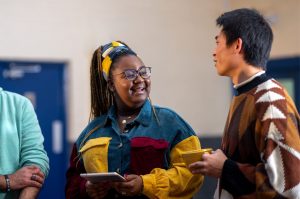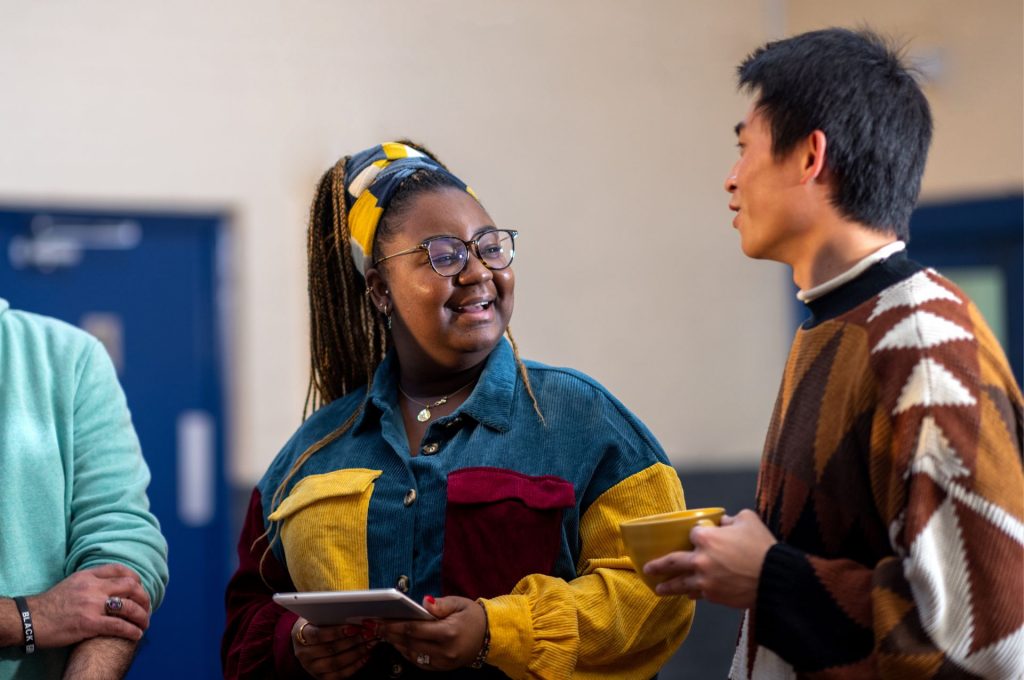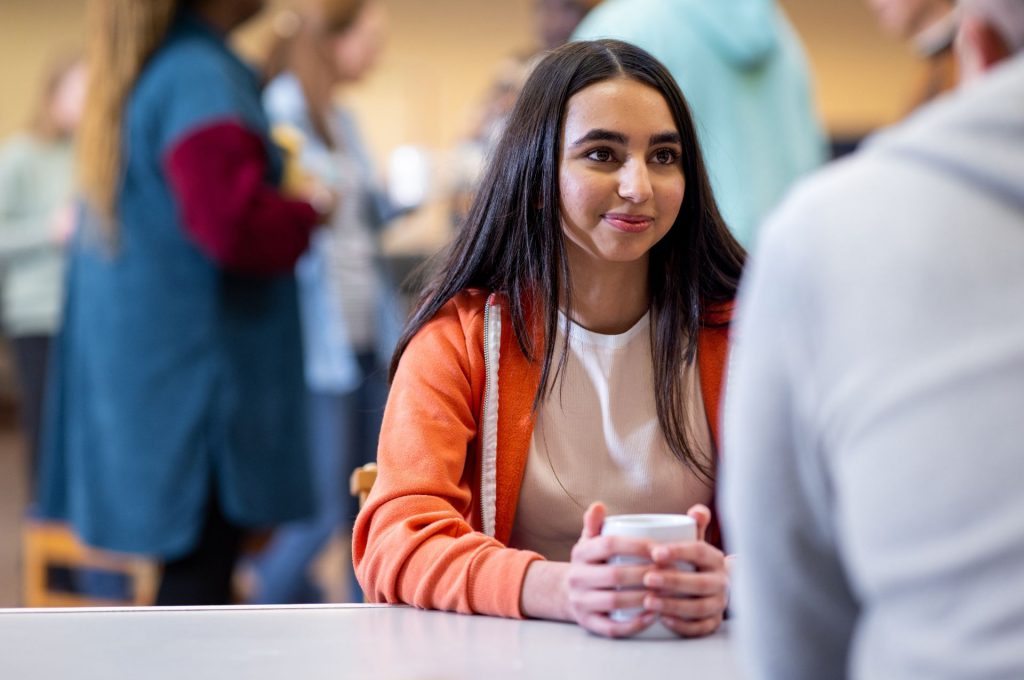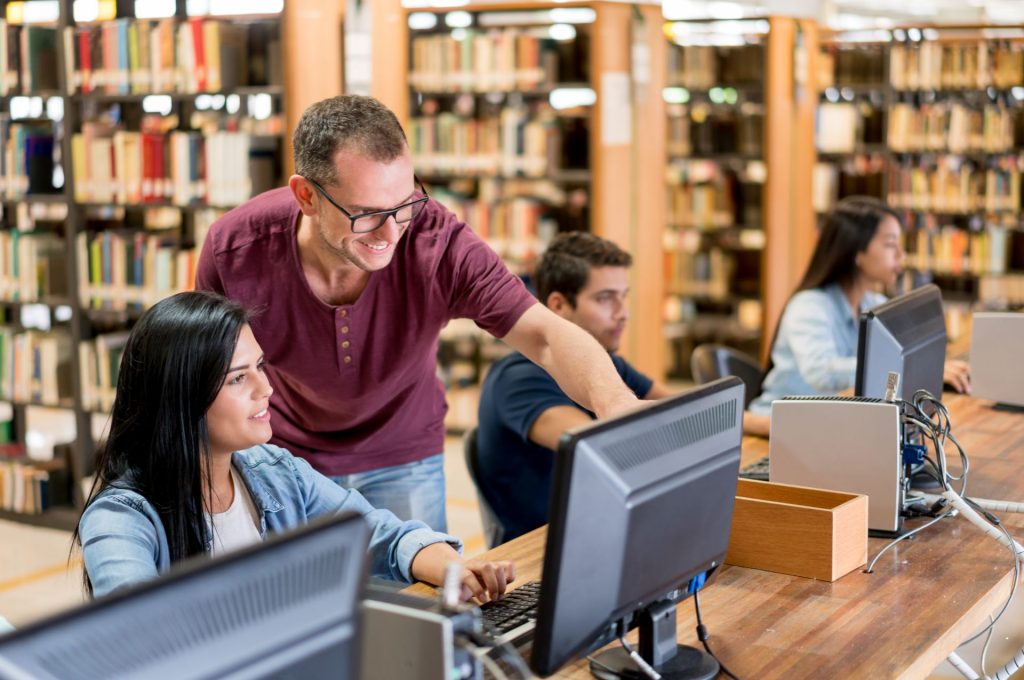Providing connectivity and skills
While providing devices is important and can make a great difference to people’s lives, we know it is just one part of being digitally included – people also need a reliable connection to the internet and the skills required to go online safely and with confidence (Yates, S. et al. 2024 ). This is especially the case for the most vulnerable and/or excluded, who might struggle with access due to many factors such as low income, disability, language and literacy skills, and/or digital skills.
Providing connectivity
- You can point people to free public access such as that available in libraries, but most people will not get the most from their device unless they are able to connect to the internet on the move and in their home, which means providing data and/or WiFi. Any guidance given to recipients should include advice/information about potential security risks of accessing free public WiFi.
- You could provide recipients with MiFi dongles or SIM cards that provide access to the internet. Some organisations work with telecoms companies to provide them with a number of dongles/SIM cards to pair with devices for free, along with a certain amount of free data. However, these can be one-off partnerships and agreements offered can be short-term, so you would need to help recipients think about what they will do once that agreement finishes. You could consider working with Good Things Foundation’s National Databank for this provision. You can find information about their eligibility criteria here
.
- Alternatively, you could point recipients towards setting up their own Pay-As-You-Go contract. There are many of these available and people might need support in being able to choose the right contract for them in terms of affordability and provision, especially if there are charges incurred for, e.g., going over data allowances. Partnering with a telecommunications company could enable you to offer a bespoke package to recipients.
- You could also point people to discounted social tariffs for broadband and mobile services on offer in your area. Ofcom maintains an up-to-date list of providers and tariffs
. Good Things Foundation has produced a guide on supporting people with data connectivity
.
Case study
VodafoneThree: Connectivity is essential
Read more about VodafoneThree and charities.connected.

Case study
VodafoneThree
VodafoneThree believes connectivity is essential, and everyone should have access to the opportunities it provides. Through our charities.connected programme we donate mobile connectivity to those who need it most, working partners to help those in need get the access, knowledge and confidence to get online. VodafoneThree has also supported Good Things Foundation’s National Databank since 2021 providing data to the their network of community groups across the UK and the people they support.

Providing skills support
Providing a device is the first step in helping people to become digitally included. In order for recipients to be able to utilise that device fully to take advantage of the opportunities available via the internet, they may need digital skills support.
- This may come in the form of basic functional skills (i.e., the skills needed to operate the device), or more critical skills (these can range from, e.g. online safety to the ability to recognise misinformation).
- They may need confidence-building or accessibility support (e.g., for older people or people with disabilities).
- Whether, to what extent, and in what ways you want to provide support for recipients will depend upon the specifics of your organisation and the communities you are serving.
- You might need to increase capacity/staffing for providing skills support if you’re not doing so via a partner. You will need to assess whether your current workforce have the digital skills themselves to deliver a support programme, or whether you will need to first train your staff.
There is a wide range of options for providing support. The suggestions below are not comprehensive but give an idea of what you may be able to offer:
- Digital skills support at the point of distribution – e.g., helping recipients set up accounts and learn basic navigation of their new device and installed software.
- Drop-in support – this could be offered via a partner like a library, who may already have some sort of digital skills provision in place. This sort of support is good for building people’s confidence and meeting them where they are in order to meet their specific needs. Many areas operate a successful digital champions model, whereby members of the public are trained in digital skills and they then pass those skills on to others. This sort of support is best offered in-person.
- Training and/or formal sessions – these could be accredited courses, or simply more structured classes designed to build skills in certain areas like online safety or job applications. This approach can be good for those looking to take the next step in building their skills level. This sort of support can be offered in-person or online via video conferencing platforms.
- Online training – there are a range of online resources to which you could signpost recipients, for example the Learn My Way
, an online learning platform for beginner stage digital skills, provided by Good Things Foundation.
Case study
#CovConnects (Coventry City Council)
Read more about #CovConnects.

Case study
#CovConnects (Coventry City Council)
Positive social impact is such an important driver for #CovConnects – and we understand that digital inclusion enables diverse positive outcomes for different people and communities.
The #CovConnects Device Bank isn’t just about providing the ‘tech’, it’s about supporting the people involved too. Our wider holistic person-centred approach ensures that our partners feel confident and able to increase the skills and confidence of their residents & communities. We run a training programme for our partners, in collaboration with Digital Unite, called Digital Champions as well. Our people centric approach has included the creation of bespoke digital inclusion networks and unique training offers. Ranging from workshops for community partners around health to interactive sessions for young people around digital literacy these workshops cover the breadth of issues found in the city.

Case study
VodafoneThree and Liverpool City Region
Partnerships are central to Vodafone’s everyone.connected campaign.

Case study
VodafoneThree and Liverpool City Region
Partnerships are central to VodafoneThree’s everyone.connected campaign. We work collaboratively to tackle the digital divide leveraging the strengths of partnerships to ensure we meet the needs of those facing digital exclusion. An example of this collaborations includes: VodafoneThree along with its partners supported over 4500 Liverpool City Region residents to learn digital skills and get online through the Digital Inclusion Initiative , a public-private partnership led by Liverpool City Region Combined Authority.
